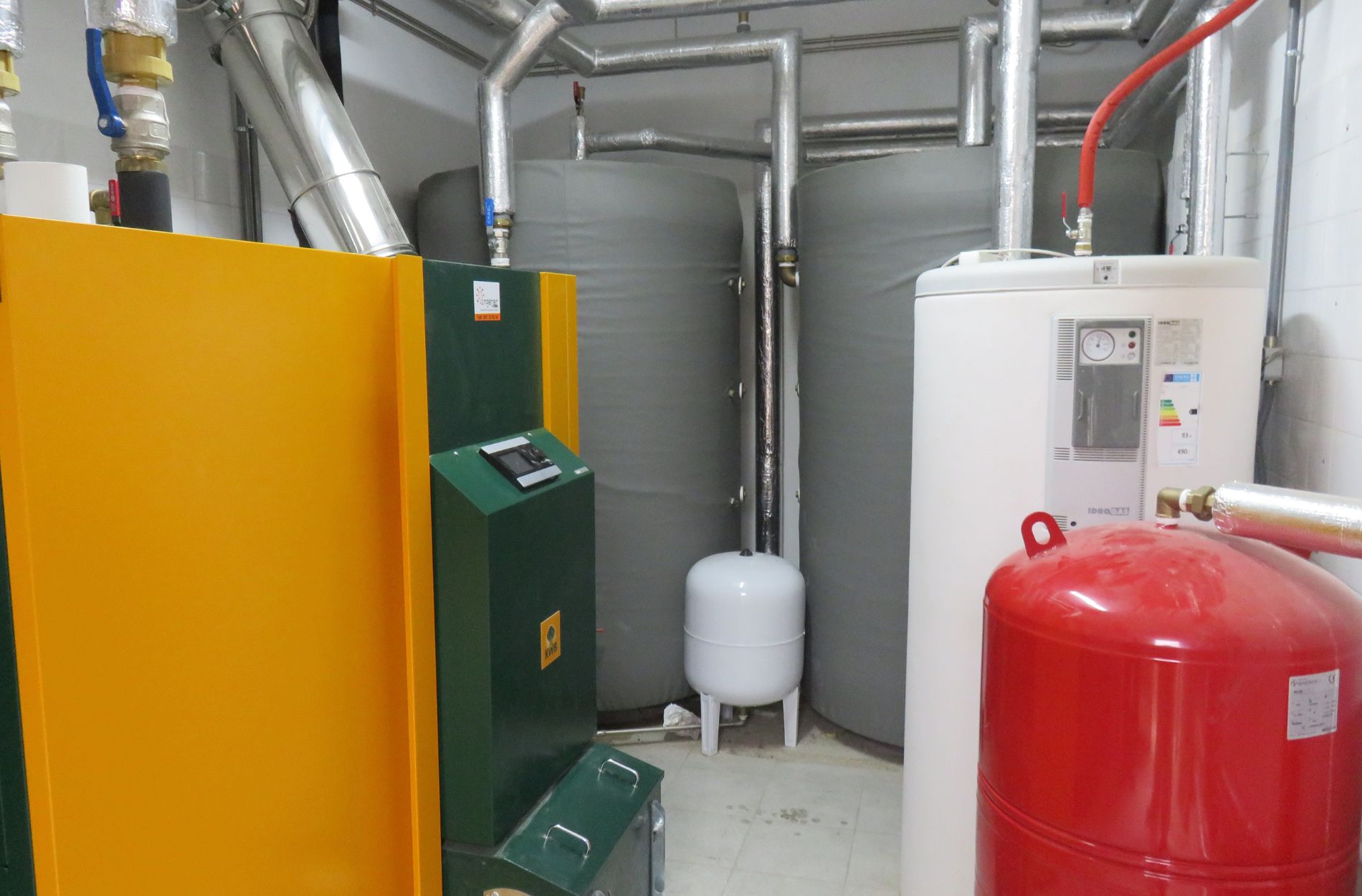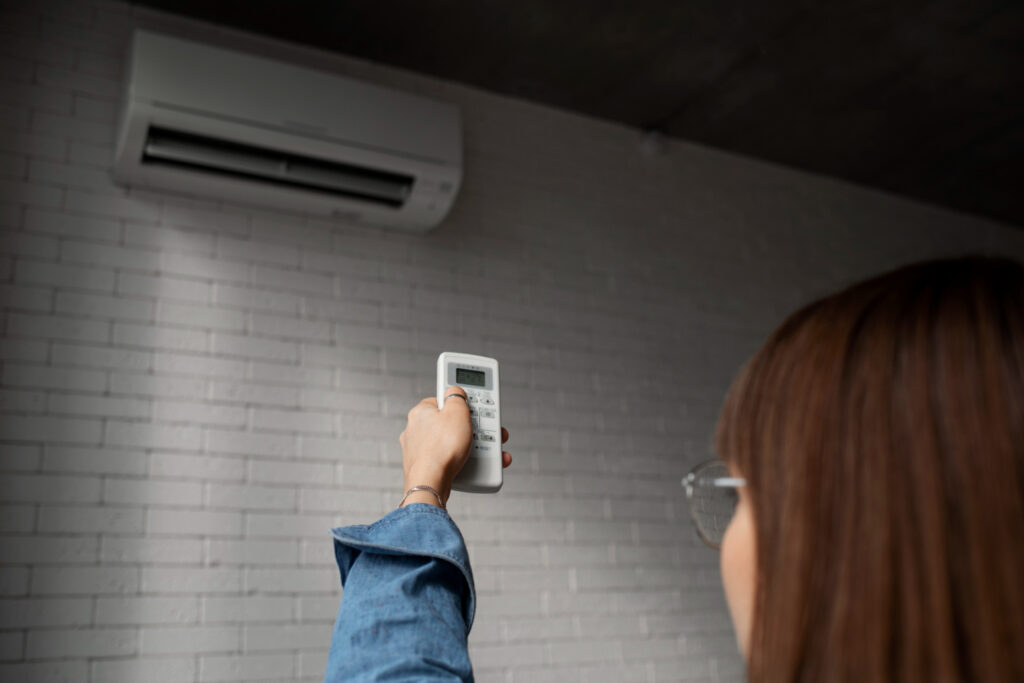If your boiler has been making weird sounds lately, you’re not alone. Rumbles, clanks, whistling, and gurgles are all noises no one really wants to hear coming from something that’s supposed to be quietly heating your home. These sounds can pop up unexpectedly and leave you wondering if something’s seriously wrong or if it’s just a small hiccup. Either way, strange noises should never be ignored. They’re usually a sign that your system needs attention, and acting early can save you trouble down the road.
In Baltimore, where the weather can shift quickly and the cold tends to linger, having a working boiler is important. When your heating system starts making odd sounds, it’s often your boiler’s way of signaling something isn’t right. Understanding what those sounds might mean can help you decide what steps to take and hopefully avoid a complete breakdown.
Common Causes Of Strange Boiler Noises
Boilers can make all kinds of noises when something inside isn’t working the way it’s supposed to. These sounds can be signs of specific problems, giving you clues before things get worse. Some common causes of strange boiler noises include clogged pipes, buildup of minerals, or pressure imbalances.
Here are a few things that might be going on:
– Air in the system: Trapped air pockets can cause bubbling or gurgling, especially when the boiler kicks on. It sounds like the system is trying to move water through blocked spots.
– Kettling: If your boiler sounds like a tea kettle coming to a boil, it could be due to scale or sediment buildup on the heat exchanger. When water flow gets restricted, it can lead to overheating inside the system.
– Low water pressure: Bangs or thuds might be due to low water pressure making it harder for water to move through the pipes.
– Pump problems: A failing internal pump may cause humming or odd shifts in sound as it struggles to maintain water flow.
– Loose parts: Something as small as a loose bracket or valve can rattle or vibrate, especially when the boiler is heating up.
Pay attention to when the noise happens. Does it start as soon as the system turns on? Or does it only happen once everything gets hot? For example, a Baltimore homeowner recently heard whistling noises just after their radiators warmed up. The issue turned out to be a pressure problem that had been building slowly. Catching it early helped prevent major damage.
Listening closely can give you a head start. Whistling might point to high pressure, while banging could mean there’s sediment causing hot spots. The more details you can gather, the better a technician’s chances of fixing it quickly.
How Strange Noises Impact Boiler Performance And Safety
Weird boiler sounds aren’t just annoying. They’re usually signs that something isn’t right—and ignoring them can lead to much bigger problems.
Your heating system works harder when it’s not running properly. Air bubbles or mineral buildup make the boiler less efficient, which means it uses more energy and wears down faster. That extra strain can drive up your heating bills, shorten the life of the equipment, and leave your home less comfortable overall.
Even more serious is the safety risk. Boilers deal with both heat and pressure, and if either gets out of control, that could lead to overheating or even leaks. Kettling, for example, is more than just a hissing sound. It reflects water trapped in the system that’s on the verge of steaming—and that pressure can warp or crack metal parts over time.
Here are some things to look out for that signal the noise may be part of a larger issue:
– The volume or frequency of the sound keeps increasing
– Heating performance drops or becomes uneven
– There’s visible water leaking near or around the unit
– You notice odd odors, especially a metallic or burnt smell
Baltimore homeowners, in particular, can’t afford to take these noises lightly. Winters can hang on for months, and any unexpected breakdown can be more than just inconvenient. Fixing a noisy boiler early helps avoid bigger failures and keeps the household safe.
Steps To Take When You Hear Strange Noises
Once you notice strange noises from your boiler, it’s smart to act fast. Catching small issues before they cause real damage can save stress, time, and money. That said, knowing what to do and when to call someone is equally important.
1. Stay calm and assess: Listen carefully to what the noise sounds like and when it happens. Keeping track helps the technician later on.
2. Adjust settings safely: Try lowering the thermostat and see if that softens or quiets the noise. This can reduce internal pressure slightly.
3. Perform basic checks: Look at the boiler pressure gauge. Too low or too high of a reading can both cause noise. Normal ranges are often marked on the gauge.
4. Look for signs of trouble: Check around the boiler and under it for any water leaks, rust stains, or loose parts that could cause vibrating or clanking.
5. Call in a pro: If you’re still hearing odd sounds, it’s best to leave it to trained professionals. Only a certified HVAC technician can safely diagnose and repair the problem.
Trying to do too much on your own could make things worse. Play it safe and let experienced eyes take a look.
Why Professional Boiler Repair Is Necessary
Boiler issues aren’t usually something you want to tackle solo. There’s more going on inside that box than what’s visible on the outside, and one missed detail can lead to bigger troubles down the road. Certified technicians understand how each part works with the others and can make repairs safely.
When you hire a professional, you get more than just a quick fix. Here’s the difference:
– Comprehensive diagnostics: Technicians run complete system checks that help find underlying causes, not just surface-level symptoms.
– Long-term repairs: Instead of patching a problem, they solve it. That means less chance of another issue popping up right after the fix.
– Safety assurance: A trained expert knows how to handle pressurized systems and heating components without putting your home or health at risk.
For Baltimore homes that rely heavily on boiler heating, dependable systems are a must. With fast-changing weather and colder seasons creeping in quickly, boiler repair in Baltimore must be handled correctly the first time.
Ensuring Optimal Boiler Performance Year-Round
The best way to avoid unexpected noise from your boiler is to keep it in good shape year-round. Regular maintenance helps catch small problems before they turn into major ones. It boosts efficiency and makes sure everything stays safe.
Here are smart ways to take care of your boiler:
– Annual inspections: Schedule professional servicing before winter hits. That’s when potential noise and heating issues are more likely to creep in.
– Clean the area: Keeping the boiler and the room it’s in dust-free can support good airflow and reduce potential blockages.
– Monitor pressure regularly: Keep the pressure within the advised range shown on the unit’s user manual. If it’s off, share that info with your technician.
– Bleed radiators: Doing this at least once during the heating season helps remove trapped air and supports even heat flow through the system.
Preventative care adds up. It helps you extend the life of the system, lower your bills, and avoid emergency visits due to surprise breakdowns.
Ready To Fix Your Noisy Boiler In Baltimore?
Strange sounds coming from your boiler aren’t something to brush off. Whether it’s an early warning sign or a direct issue, odd noises can lead to reduced efficiency, high energy use, or system damage. With regular maintenance and professional help, you can keep your boiler humming quietly no matter the season.
For homeowners in Baltimore, staying ahead of heating system issues keeps your household running smoothly. Don’t wait until the cold hits or the noise gets worse. Whether it’s a whistle, bang, or gurgle, these sounds tell you it’s time to take action.
FAQs
What should I do if my boiler starts making strange noises?
Listen closely to the noise and make a note of when it happens. Check the pressure gauge and look for leaks. Then, call in a professional to check it out.
How can I tell if the noise from my boiler is a serious issue?
If the sound is loud, happens often, or gets worse over time, it could be a sign of a more serious issue like pressure buildup or internal damage.
Is it safe to attempt DIY repairs on my boiler?
It’s not recommended. Boilers can involve pressurized systems and electrical components. Always have a certified HVAC professional do the work.
How often should I have my boiler inspected and serviced?
Once a year is recommended. A yearly tune-up helps catch problems early and keeps your system in top shape.
What are the benefits of professional boiler maintenance?
Consistent maintenance helps your boiler last longer, run more efficiently, and stay safe. It also reduces surprise breakdowns when you need heat most.
Experiencing strange noises from your boiler and not sure what to do? Don’t let those unsettling sounds affect your comfort or energy bills. Trust Complete Climate Services to provide the expert care your system needs. Learn how our dependable boiler repair in Baltimore can keep your heat running smoothly all year long.



